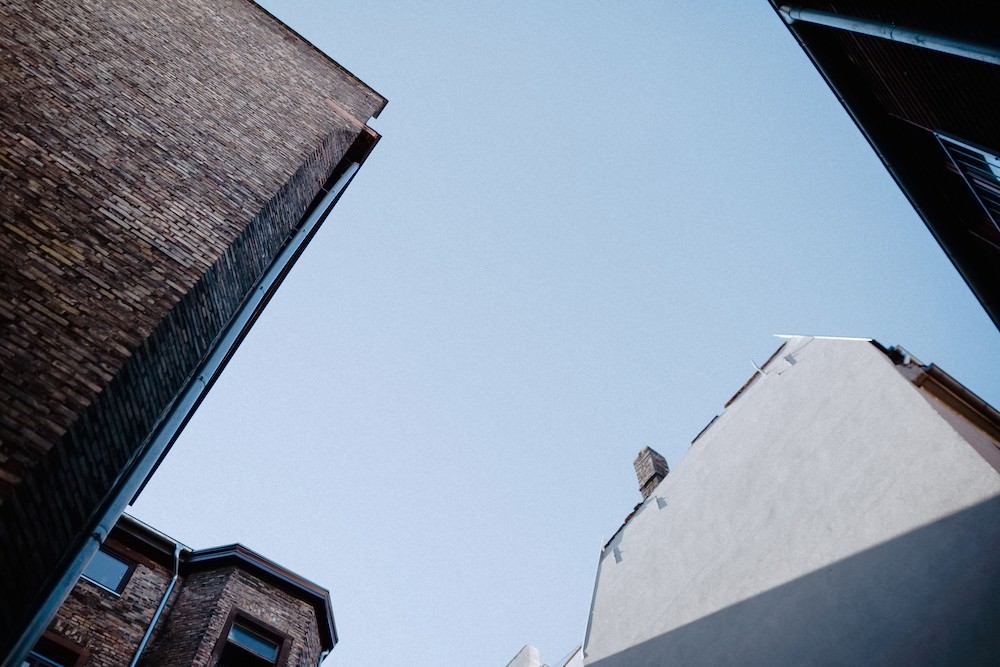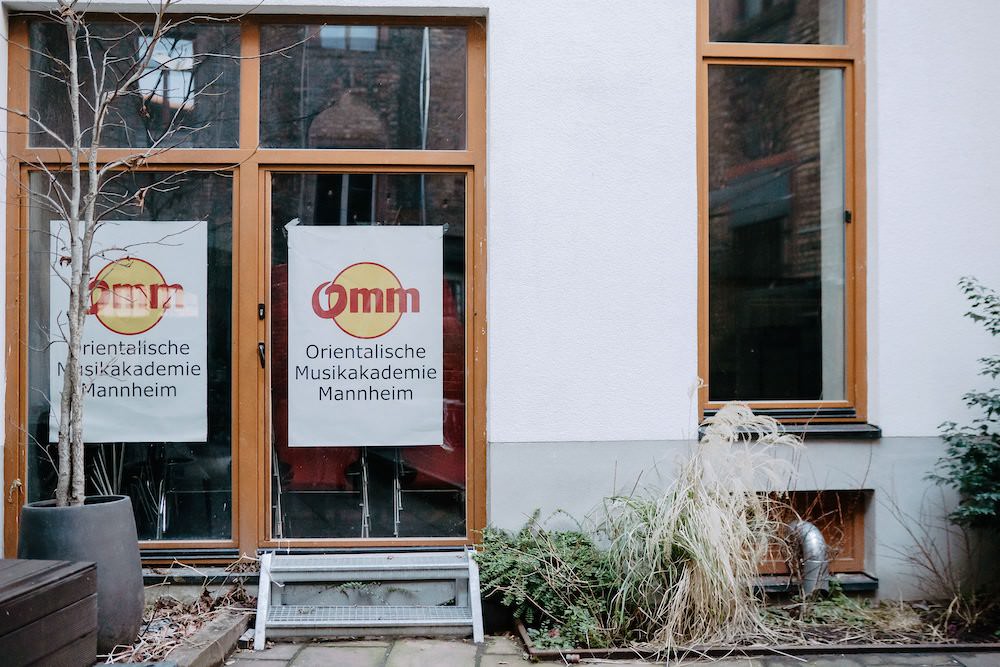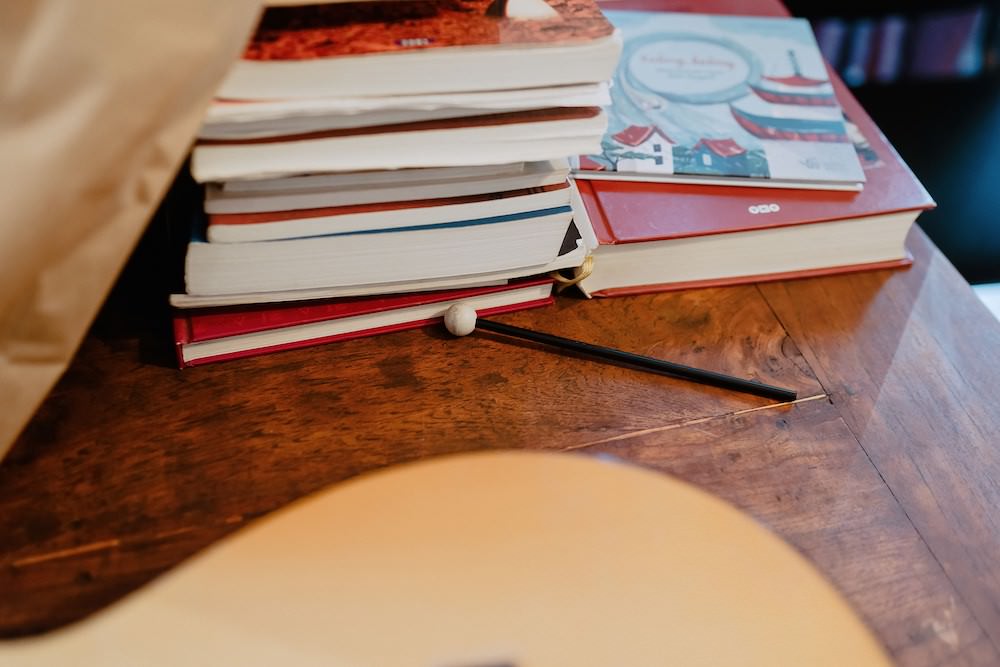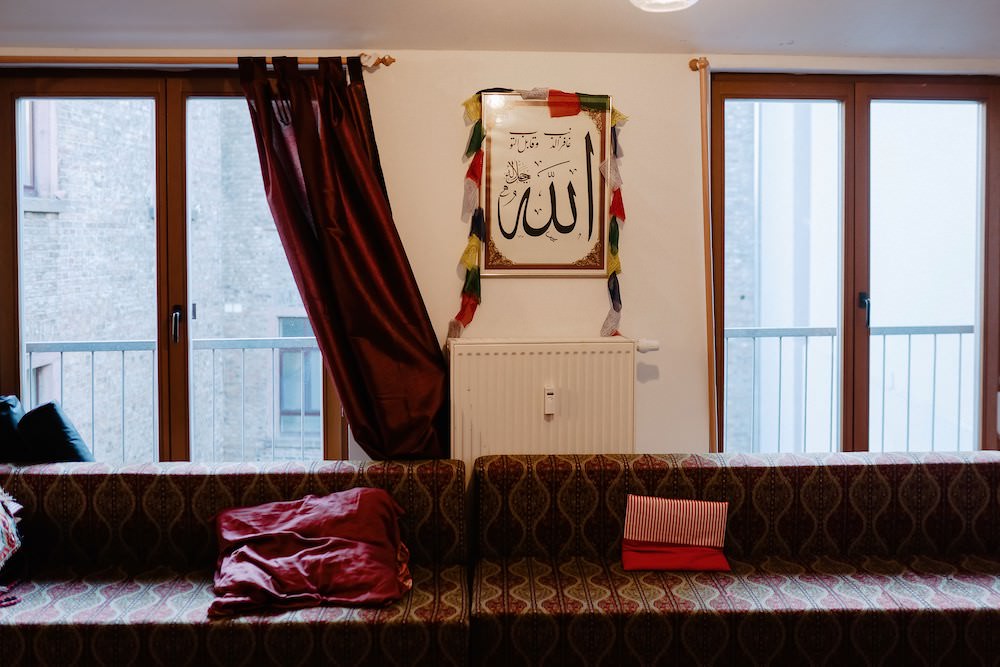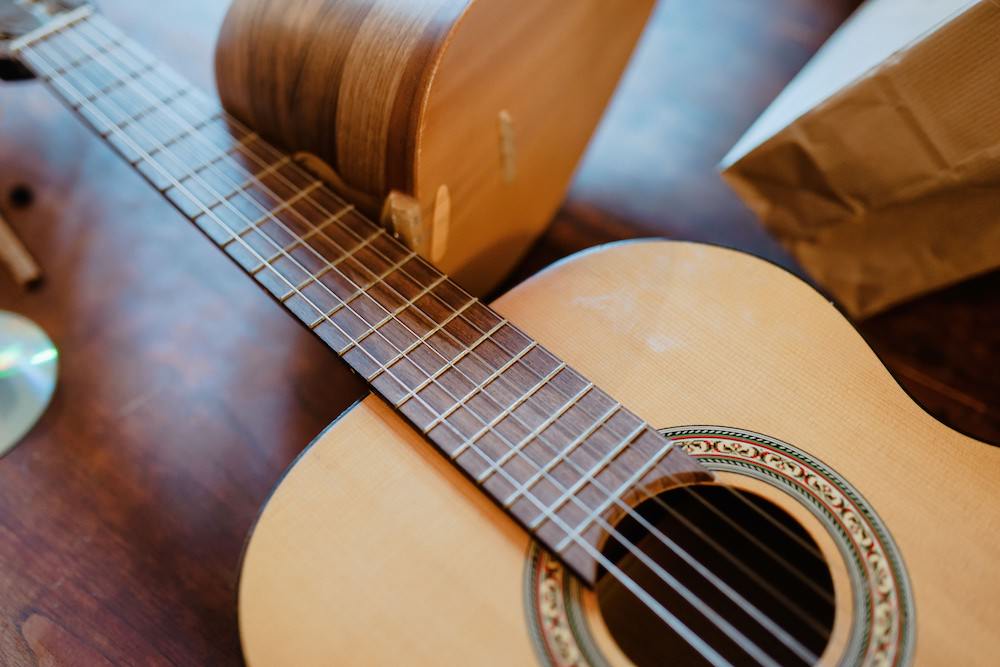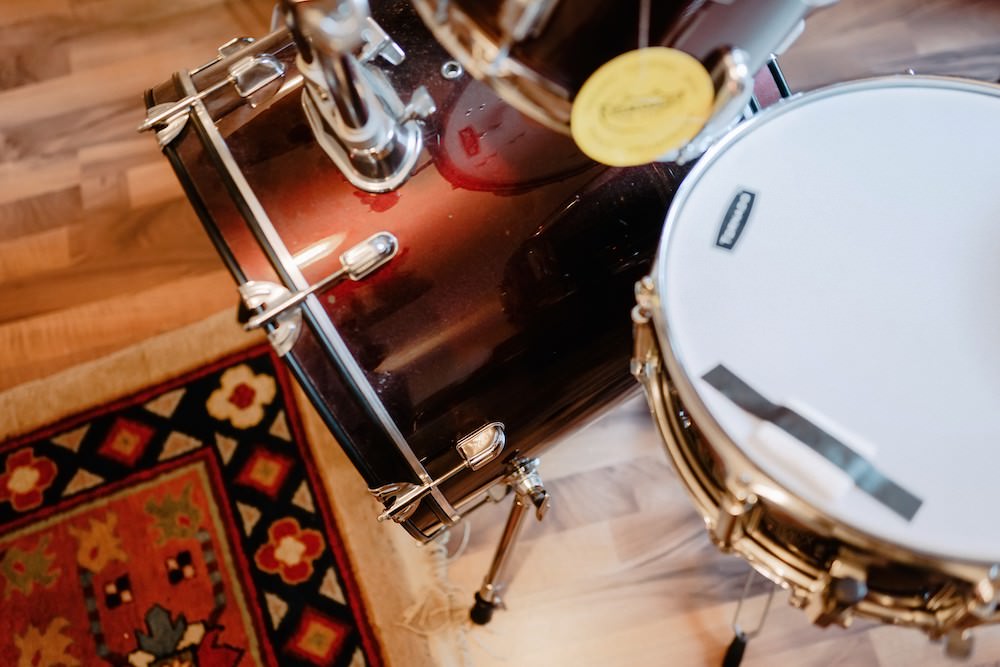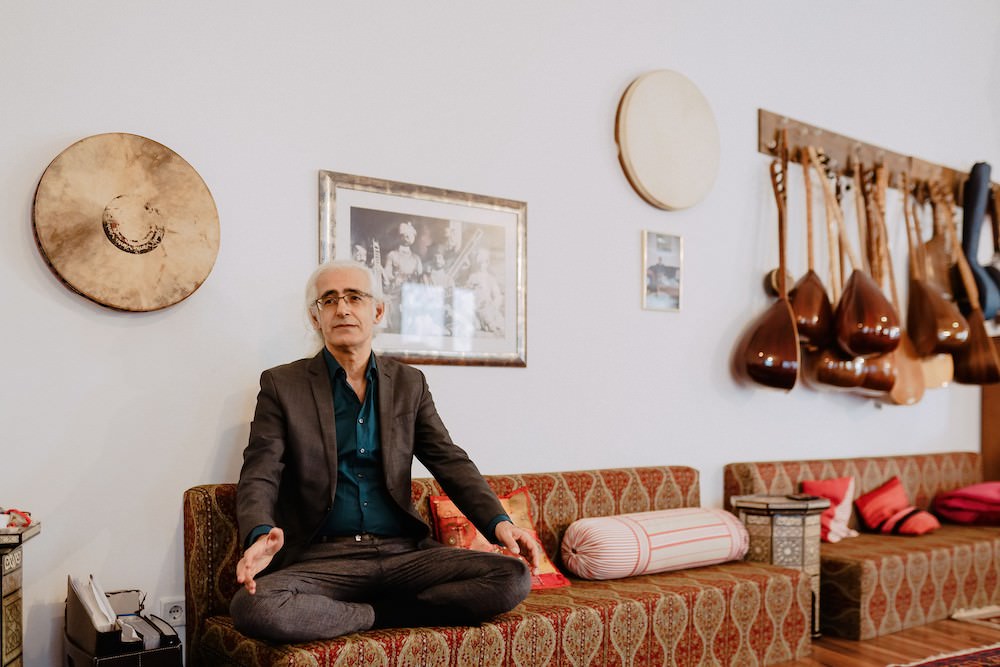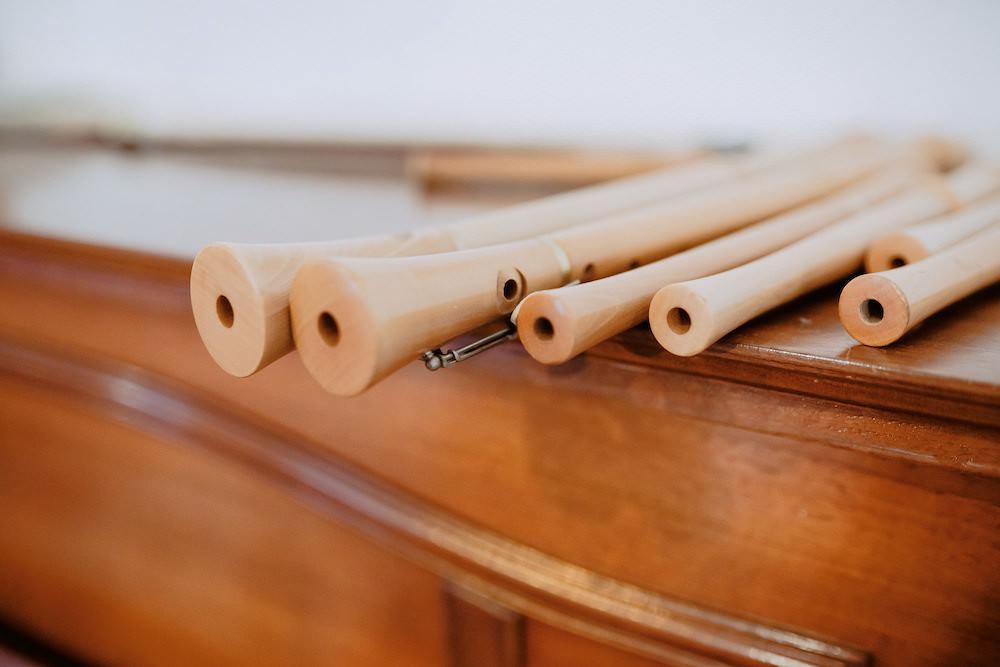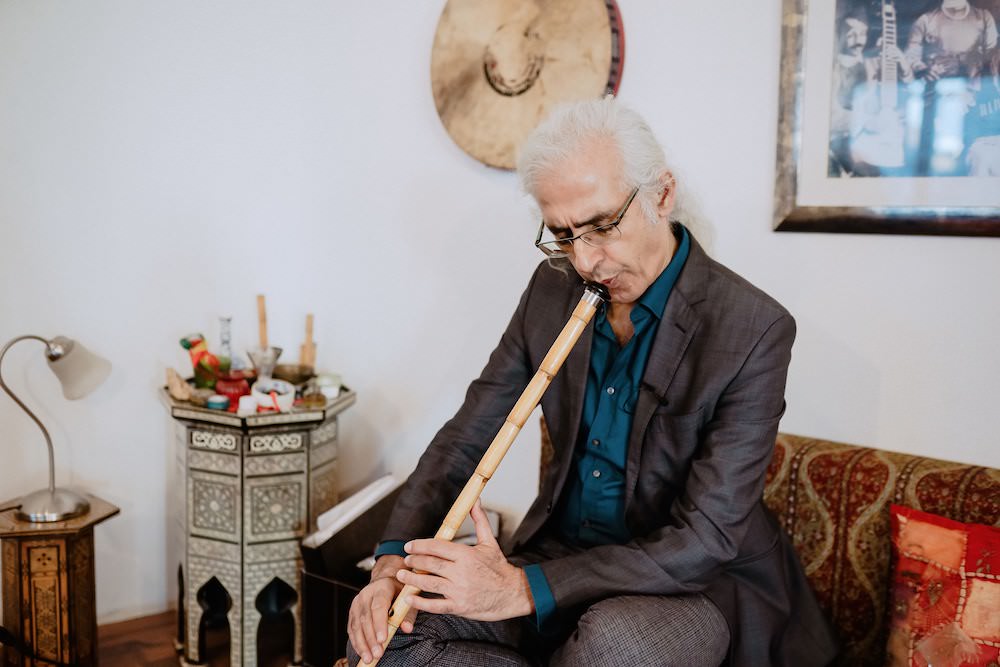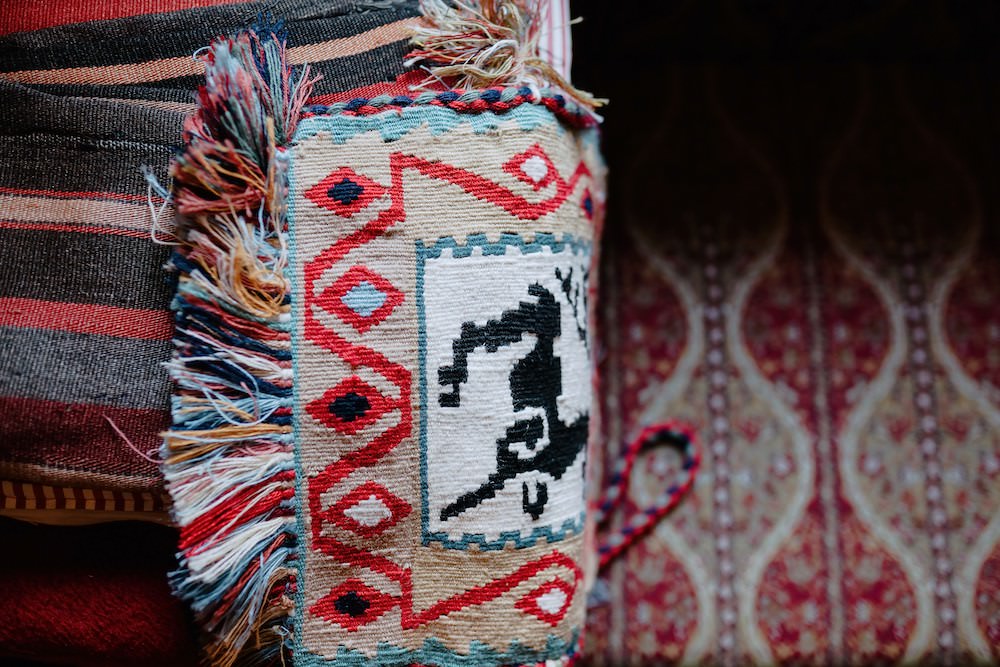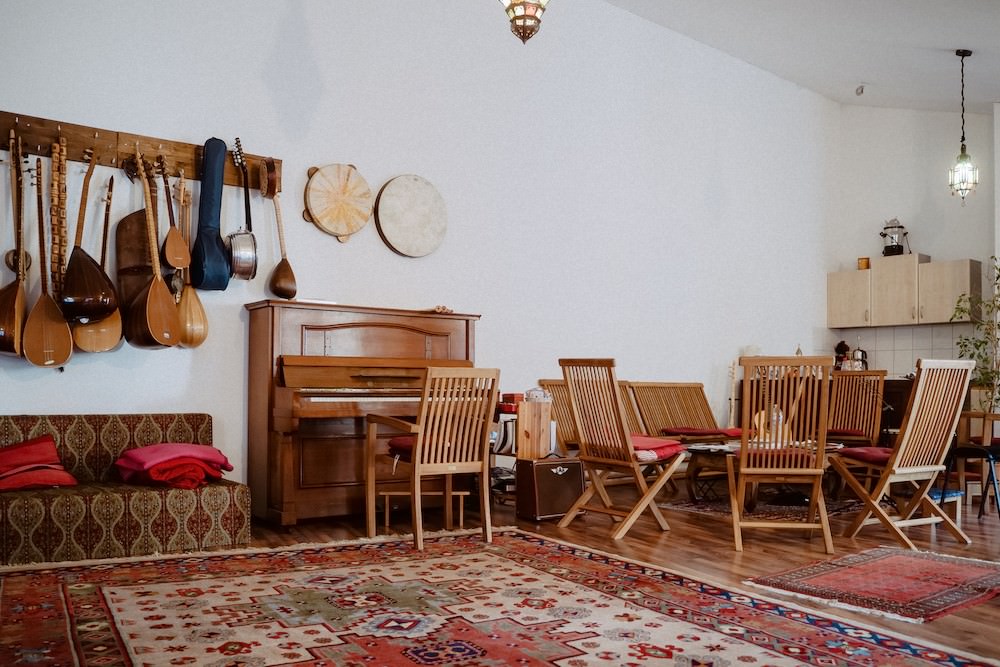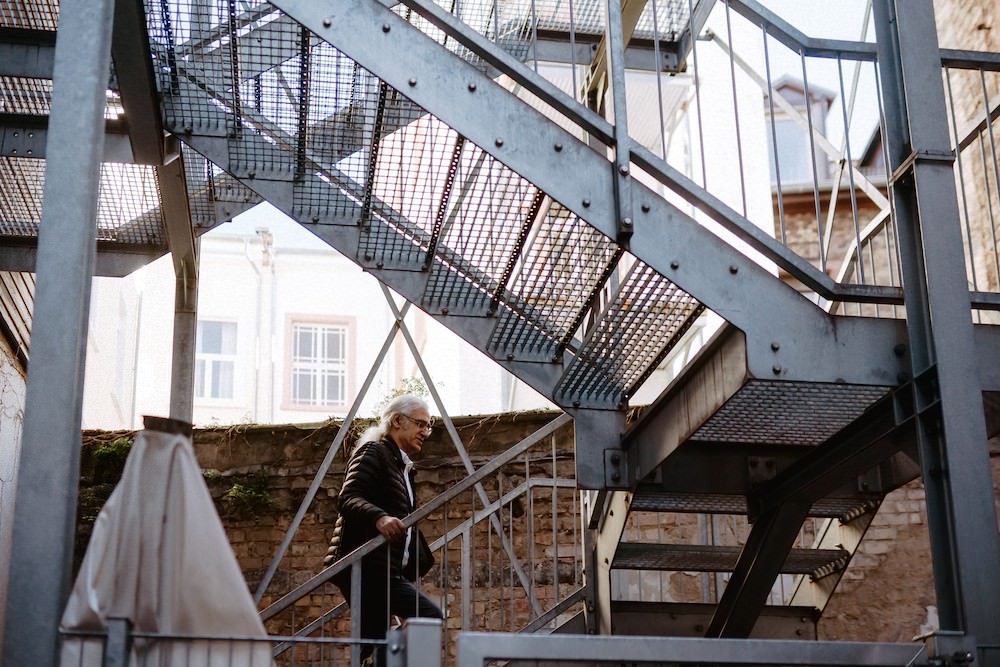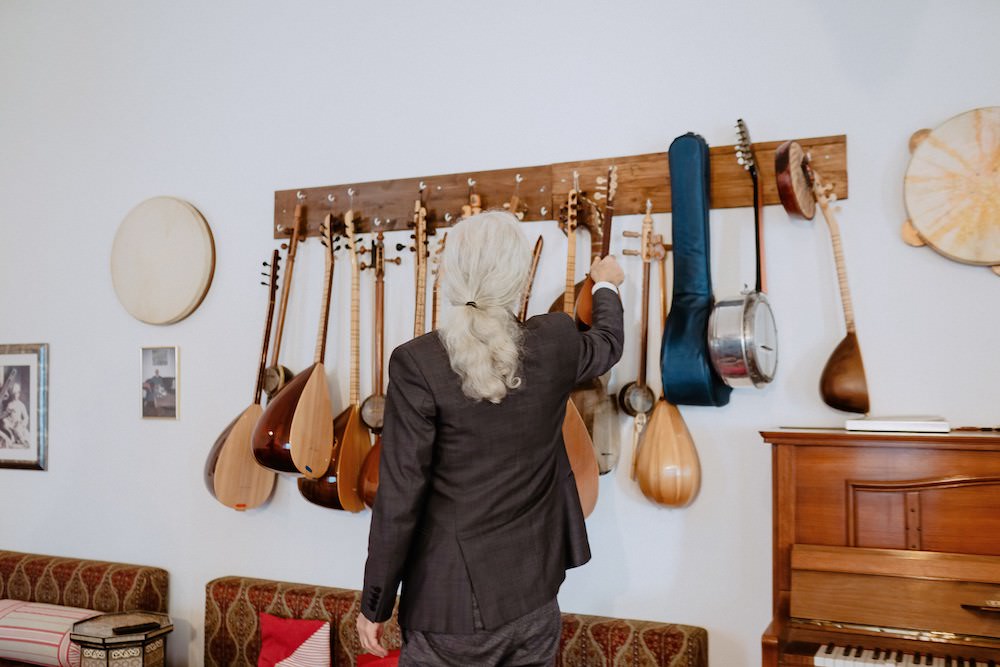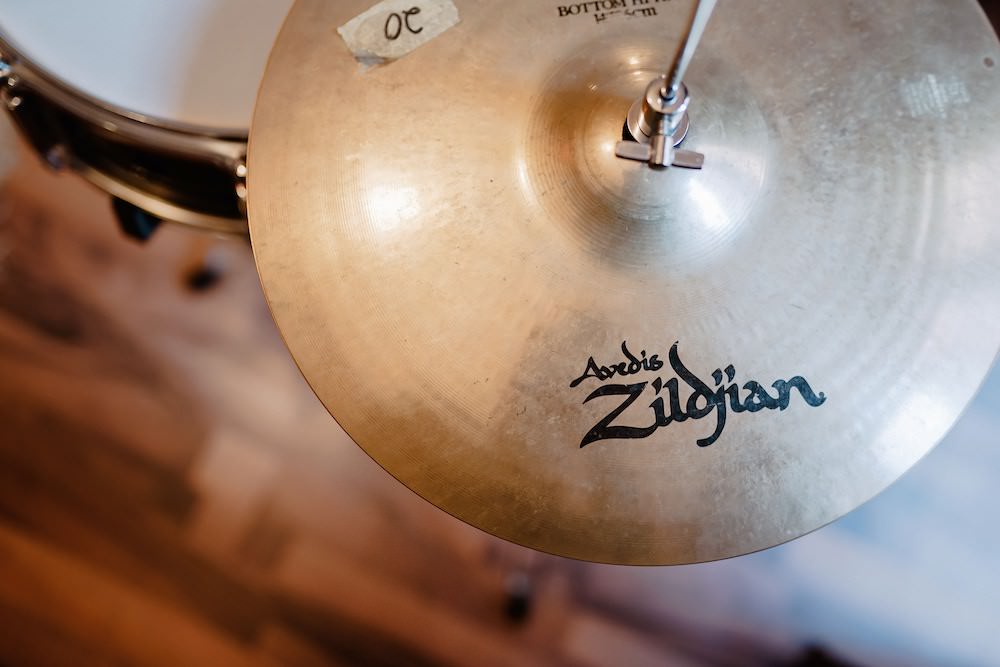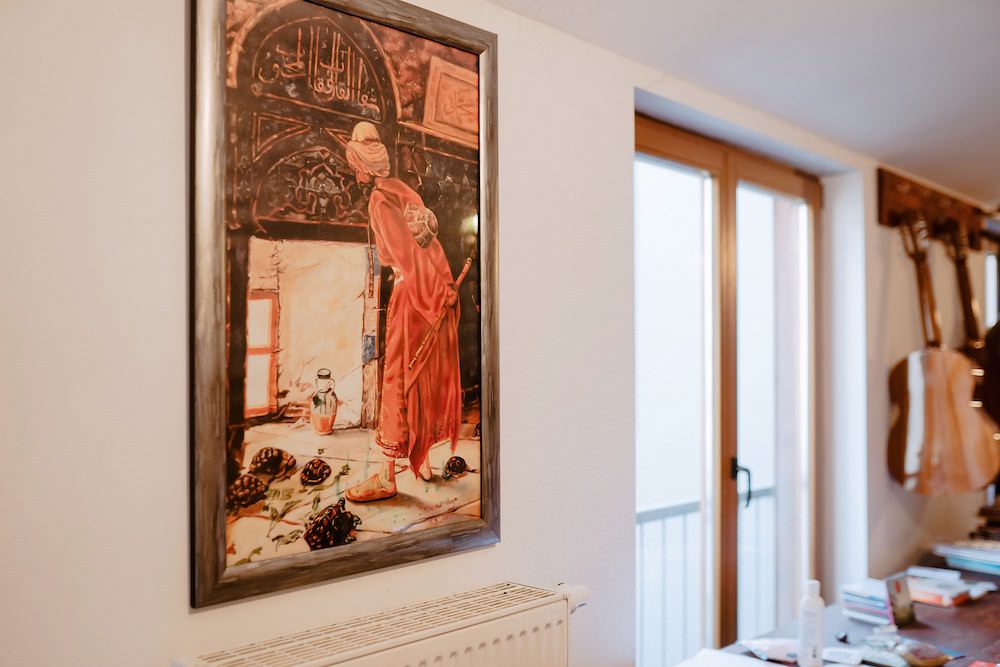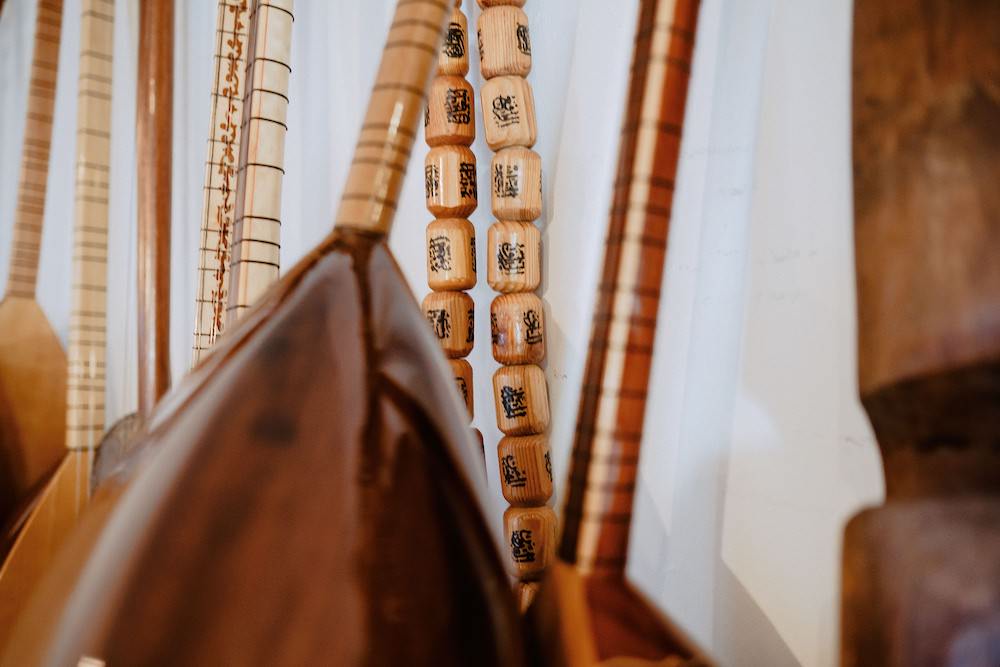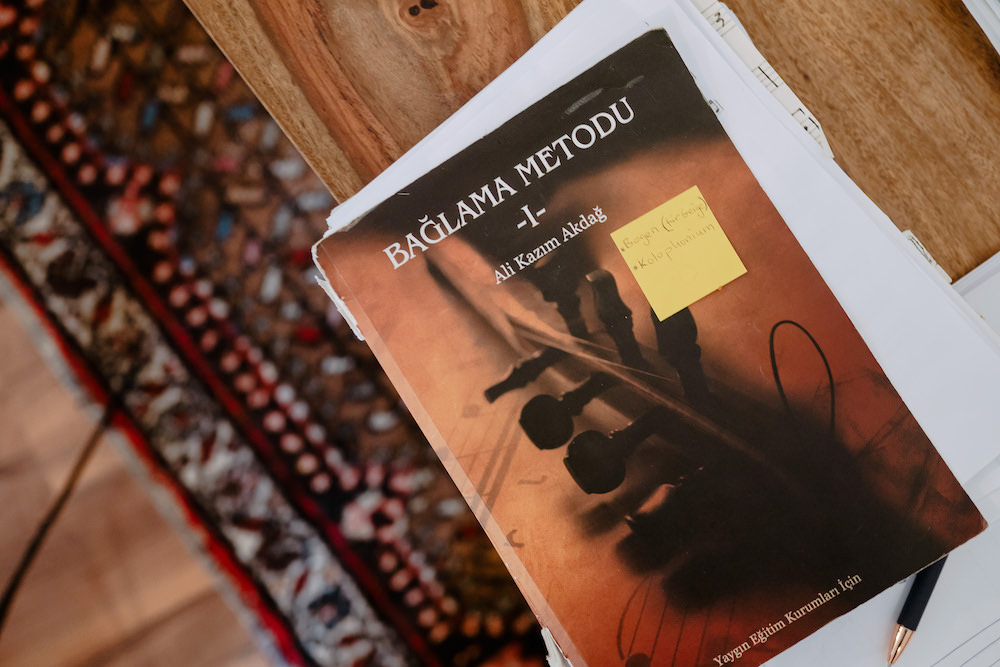A place full of colours, scents, voices and foreign melodies—Jungbusch is the part of Mannheim where the most diverse lifestyles meet. And at the heart of this bustling, multicultural neighbourhood there is a special music school: the OMM Orientalische Musikakademie Mannheim—a place for art, culture and integration.
The academy was founded by musician and sociologist Mehmet Ungan and a team of other creative artists of various ethnic backgrounds in 2008. “Back then we planted the seed,” as the 65-year-old puts it. Indeed, the wide range of offers and the commitment shown there unfolds like an imposing tree with strong roots and a lush treetop. And it has grown in terms of space as well. Today, the entire building in this courtyard in Jungbuschstraße road is used by the music school, even the basement where studios have been installed. One of the floors holds space for meditation—a “space for spacelessness,” as Mehmet describes it.
However, it all began at the top of the building, directly under the roof. Having many windows this large room is flooded with light. “It gets really hot here in summer—like in the Orient,” the director of the school laughs. The parquet flooring is covered with colourful carpets. Low upholstered benches skirt the walls and embroidered pillows invite you to sit down on the floor. A variety of string instruments hang on the wall, such as rebab, saz and kemençe. And there are also wind and percussion instruments in this miraculous musical room. Lessons for ten different instruments and for dance are currently offered.
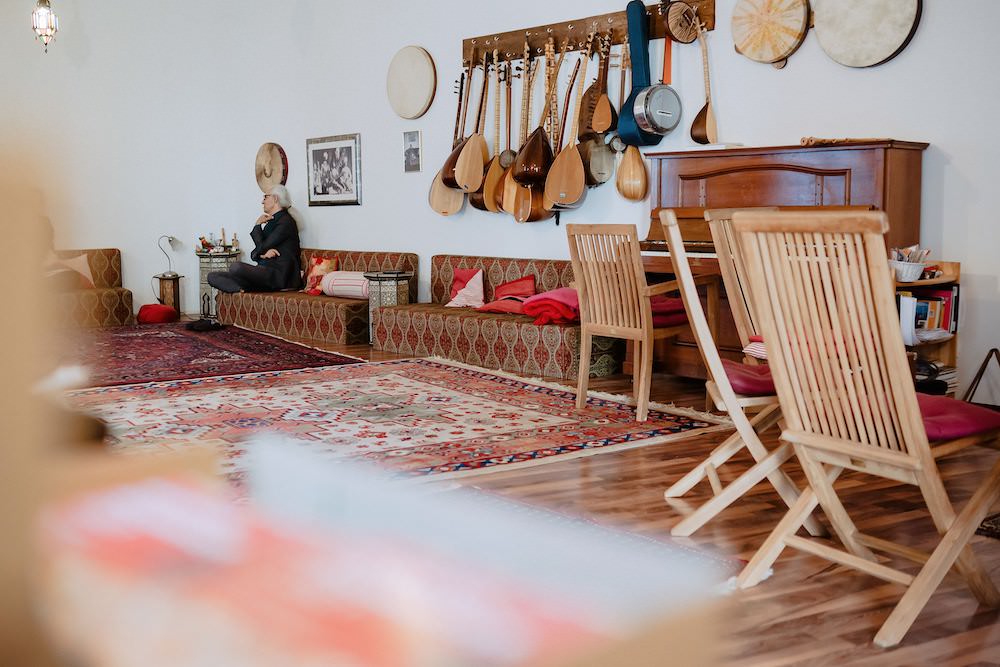
Mehmet himself teaches others to play the Ney—a reed pipe and one of the oldest musical instruments in the world still in use. And he teaches playing the oud, a lute from the Middle East that can be considered the ‘mother’ of its German counterpart. It is plucked with a plectrum that is much longer than the ones known here. “In former times they used eagle’s feathers,” the instrumentalist shares his knowledge. If you ask Mehmet how many ouds he owns, he laughs heartily: “I’ve lent out ten of them—seven of which certainly won’t ever be returned.”

